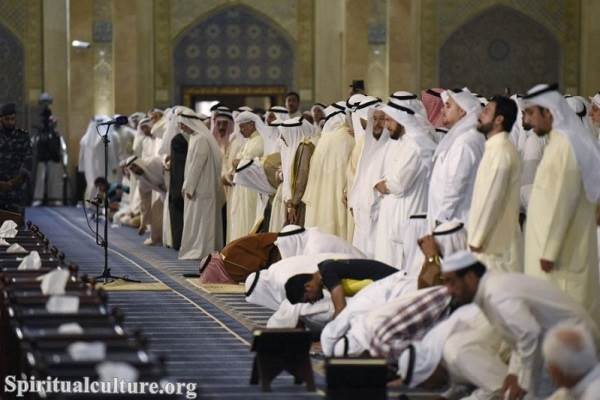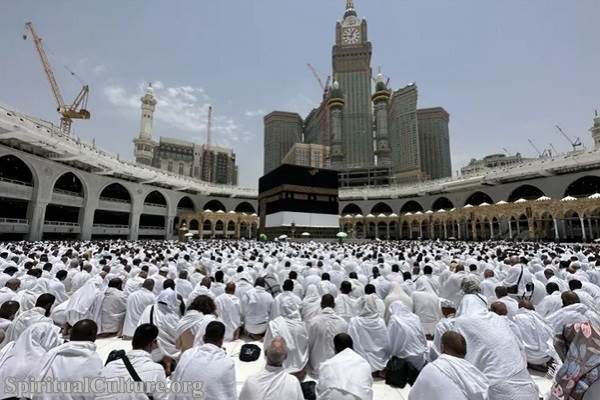We live in a world where wealth is often pursued as an end in itself — a symbol of status, security, and success. But in Islam, wealth is never just about ownership. It is about responsibility, accountability, and the opportunity to reflect divine mercy in action. Islam’s view on wealth and charity is not one of denial or disdain for material possessions, but of discipline, compassion, and balance.
In this article, Spiritual Culture invites you into the deeply spiritual ethics of wealth in Islam — a tradition where every coin is a trust, every act of giving a path to purification, and every heart moved to generosity is closer to God. We’ll explore how the Quran and Hadith shape Islamic economics, the pillars of charitable giving, and why the spiritual life and financial life are not separate, but deeply interwoven.
Wealth in Islam: A Blessing and a Test
Wealth is Not Evil — It Is a Trust
In Islamic teachings, wealth is not condemned — but neither is it glorified. Rather, it is treated as an amanah (a trust) from God. This foundational concept reframes the way a Muslim views money, possessions, and material gain.
“Believe in Allah and His Messenger and spend out of that in which He has made you successors (trustees).”
— Qur’an 57:7
Here, the Qur’an reminds us that we are not owners, but stewards. Our wealth belongs ultimately to God, and we are entrusted to use it wisely and justly. This view protects against both hoarding and reckless spending.
Wealth Is a Test of the Soul
Islamic theology also makes it clear: wealth is one of life’s great tests.
“Your wealth and your children are but a trial, and Allah has with Him a great reward.”
— Qur’an 64:15
In this light, financial abundance is not merely a blessing — it’s an opportunity to demonstrate gratitude, humility, and generosity. Conversely, poverty is not a punishment, but a different kind of test — one that calls for patience and reliance on God.
Balance Between Dunya and Akhirah
Islamic thought constantly balances the dunya (this worldly life) and the akhirah (the hereafter). A Muslim is encouraged to earn, build, and provide — but never at the cost of losing their soul.
“Seek the life to come through what God has granted you, but do not forget your share of the world.”
— Qur’an 28:77
This dual emphasis encourages ethical entrepreneurship: to engage in trade, invest, and work — while always remembering the higher purpose behind material means.
The Spiritual Power of Charity (Sadaqah)
Charity as Purification
The word zakat, the obligatory almsgiving in Islam, literally means purification. It is not simply a tax or a social obligation — it is a spiritual cleansing of one’s wealth.
“Take from their wealth a charity by which you purify them and cause them to increase, and invoke blessings upon them.”
— Qur’an 9:103
Wealth, when held too tightly, can corrupt the heart. But when given freely, it purifies both the giver and the receiver. Zakat reminds the faithful that the poor have a right in our wealth — and giving is not optional, but foundational.
Sadaqah: Voluntary Generosity
Beyond zakat, Islam encourages sadaqah — voluntary charity given out of love, compassion, and spiritual yearning.
“The likeness of those who spend their wealth in the way of Allah is as the likeness of a grain which grows seven ears, in every ear a hundred grains.”
— Qur’an 2:261
Sadaqah is not measured by amount but by intention. A single coin, a smile, a helping hand — all can be acts of charity. The Prophet Muhammad (peace be upon him) even said:
“Even a smile is charity.”
— Hadith, Sahih Muslim
This broad definition democratizes charity. Everyone can give, no matter their income level. It reinforces that generosity is a state of heart, not a size of wallet.
Zakat: The Pillar That Lifts Society
One of the Five Pillars of Islam
Zakat is not peripheral. It is one of the Five Pillars of Islam — placed alongside prayer, fasting, pilgrimage, and testimony of faith.
Every eligible Muslim is required to give 2.5% of their saved wealth annually to those in need. It’s not a donation — it’s a redistribution, a correction to social imbalance, and a reminder that excess wealth must circulate, not stagnate.
Who Receives Zakat?
The Qur’an outlines eight categories of people who are eligible for zakat:
“Zakat expenditures are only for the poor and for the needy, and for those employed to collect it, and for bringing hearts together [for Islam], and for freeing captives, and for those in debt, and for the cause of Allah, and for the stranded traveler.”
— Qur’an 9:60
This verse reveals the depth and diversity of Islamic concern. Charity isn’t limited to hunger relief — it includes emotional, financial, and even spiritual support. Whether someone is burdened by debt, displaced, or seeking truth — they are seen, valued, and supported.
Wealth Ethics in Business and Earning
Halal Income: Money with Integrity
Islam places great emphasis on the means by which wealth is earned. Only halal (permissible) income is considered spiritually pure.
“O you who have believed, do not consume one another’s wealth unjustly.”
— Qur’an 4:29
This prohibits exploitative practices like fraud, interest-based lending (riba), and unethical trade. Commerce is not condemned — in fact, Prophet Muhammad himself was a merchant — but ethics must guide every transaction.
A Muslim businessperson is expected to be honest, fair, and transparent. Work is seen as a form of worship when done with integrity and service in mind.
Avoiding Hoarding and Greed
Islam critiques hoarding wealth without circulation. The Qur’an warns against those who pile riches without sharing:
“And those who hoard gold and silver and spend it not in the way of Allah — give them tidings of a painful punishment.”
— Qur’an 9:34
Wealth, in this view, must flow — not stagnate. It must nourish, not isolate. Like water in a stream, money gains power when it moves.
Real-World Implications: From Personal Giving to Global Justice
Personal Spiritual Benefits
Charity isn’t just about others — it transforms the self. It softens the heart, counters ego, and deepens trust in divine provision.
“Charity does not decrease wealth.”
— Hadith, Sahih Muslim
This counterintuitive truth invites a shift in mindset. Giving, paradoxically, multiplies. Not always in material ways, but in peace, contentment, and barakah (divine blessing).
Social Equity and Economic Justice
Islam’s economic ethics create a safety net rooted in compassion. Through zakat and sadaqah, wealth flows from the privileged to the vulnerable, creating dignity, not dependence.
In a world of growing inequality, this model speaks prophetically. It envisions a society where no one is left behind — not through state policy alone, but through spiritual responsibility.
Modern Models of Islamic Charity
Today, zakat funds support everything from refugee relief to medical aid, microfinance, and education. Across the world, Muslims establish waqf (endowments) and charitable foundations that reflect Islam’s enduring call: to serve the poor, uplift the needy, and embody mercy.
Reflect and Reimagine
Wealth in Islam is never just a number — it is a reflection of the soul’s condition. Every possession, every coin, is a divine trust. Every act of giving is a form of worship. And every generous heart is walking the path of the Prophet.
Islam calls its followers to a higher view of money — one where earning is dignified, spending is ethical, and giving is sacred. It unites the spiritual and the material, reminding us that the way we handle wealth reveals the state of our hearts.
Spiritual Culture invites you to consider:
How do you view your wealth — as an entitlement or a trust?
Is your hand open in gratitude and generosity, or closed in fear?
What might it mean for you, today, to give — not just to fulfill a duty, but to draw nearer to the Divine?
In giving, we are not losing — we are becoming.
And in that becoming, we find what truly matters.




